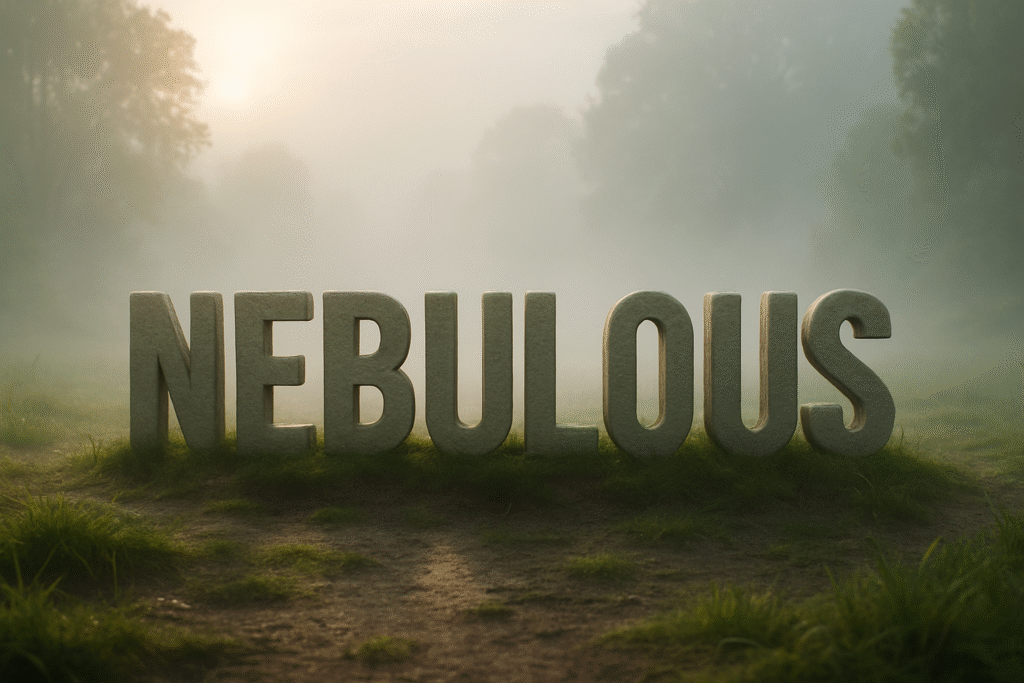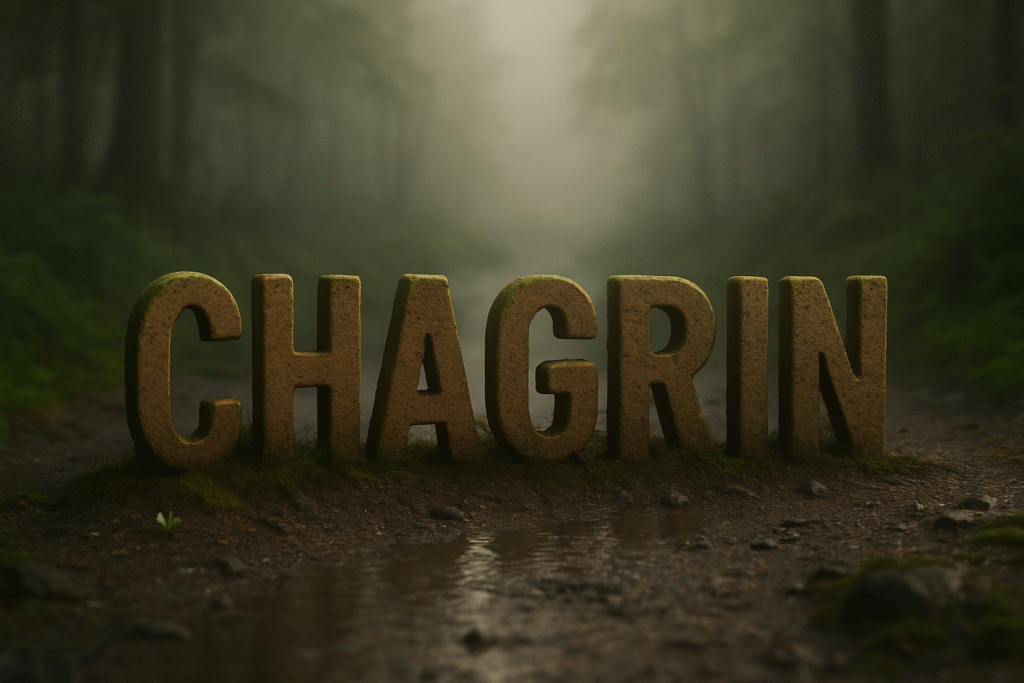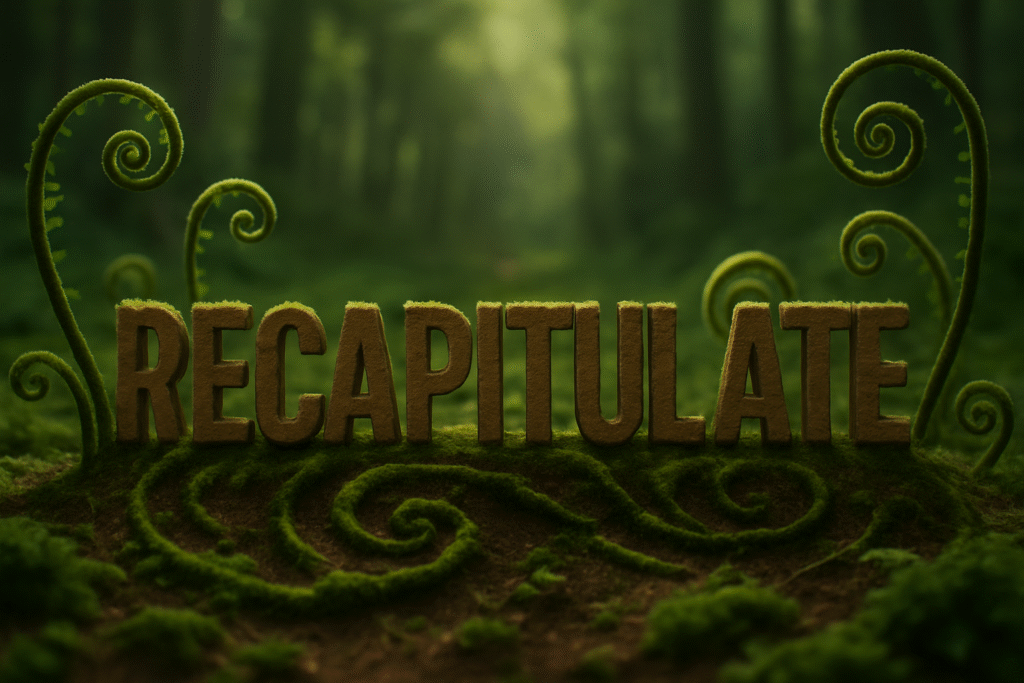Rarefied

Today's Word Rarefied RAIR-uh-fyd Definition (adjective) Distant from the ordinary; elevated, refined, or thin (as in air at high altitudes). Example The scientist’s rarefied theories fascinated her peers but left the public scratching their heads. Word Origin From Latin rarefacere, meaning “to make thin.” Fun Fact Originally used in physics to describe air thinned at high altitudes, rarefied later took on a metaphorical sense—ideas, lifestyles, or circles of influence that exist far above everyday experience. A rarefied discussion might deal with abstract philosophy, while a rarefied atmosphere could describe both mountaintops and elite social circles. The word captures the tension between refinement and isolation—how elevation, whether intellectual or physical, can be both exhilarating and lonely.
Onus

Today's Word Onus OH-nuhs Definition (noun) A burden, duty, or responsibility—especially one that is difficult or unwelcome. Example The onus of proving the theory fell on the scientists who proposed it. Word Origin From Latin onus, meaning “load” or “burden.” Fun Fact The word onus often appears in legal and ethical discussions, as in the onus of proof—the responsibility to demonstrate a claim’s validity. But beyond the courtroom, it reflects the subtle pressure of expectation we carry in everyday life. Linguists point out that onus has remained almost unchanged for centuries, perhaps because the feeling it describes—weight without visibility—hasn’t changed either. Whether it’s duty, guilt, or accountability, onus names that quiet gravity we all recognize.
Nebulous

Today's Word Nebulous NEB-yuh-lus Definition (adjective) Unclear, vague, or ill-defined; resembling a cloud or haze. Example His plans for the future remained nebulous, more dream than direction. Word Origin From Latin nebula, meaning “mist” or “cloud.” Fun Fact In astronomy, a nebula is a massive cloud of gas and dust in space where stars are born. The figurative meaning of nebulous—something vague or hard to see clearly—came later, borrowing that same sense of hazy uncertainty. Interestingly, in both uses, something nebulous often signals potential rather than absence; after all, every star begins as a blur in the dark.
Chagrin

Today's Word Chagrin shuh-GRIN Definition (noun) A feeling of distress or embarrassment caused by failure or disappointment. Example To her chagrin, the carefully planned surprise party was spoiled by an accidental group text. Word Origin From French chagrin, meaning “sorrow” or “vexation,” possibly derived from a word for “rough skin” — like something that irritates. Fun Fact The word chagrin carries an emotional texture that’s more complex than simple embarrassment — it’s a blend of frustration, disappointment, and self-directed annoyance. In 17th-century France, chagrin described both emotional irritation and literal roughness, as if one’s pride had been rubbed raw. Writers often use it to show quiet, internal defeat rather than public humiliation — the kind that makes you wince later, long after the moment has passed.
Salubrious

Today's Word Salubrious suh-LOO-bree-us Definition (adjective) Health-giving; promoting well-being. Example The mountain air was so salubrious that even a short stay left them feeling refreshed and energized. Word Origin From Latin salubris, meaning “healthful,” related to salus, or “health.” Fun Fact In the 18th and 19th centuries, “salubrious climates” were all the rage—people believed certain locations could cure ailments just by breathing the air. Seaside towns, high mountain retreats, and mineral springs all marketed themselves as salubrious destinations. Today, the word has broadened to describe anything that benefits your health—whether it’s clean food, clear skies, or even positive company. It’s a reminder that sometimes, well-being isn’t complicated—it’s environmental.
Avarice

Today's Word Avarice AV-uh-ris Definition (noun) Extreme greed for wealth or material gain. Example His avarice drove him to exploit every opportunity, no matter who was hurt in the process. Word Origin From Latin avaritia, meaning “greed” or “covetousness.” Fun Fact Avarice has been condemned for centuries as one of the Seven Deadly Sins, but it often hides behind ambition or thrift. In literature, it’s a recurring theme—from Charles Dickens’s Ebenezer Scrooge to F. Scott Fitzgerald’s Jay Gatsby—characters who chase wealth so relentlessly that it consumes their humanity. Psychologists note that avarice isn’t just about money; it’s about control and fear of loss, a hunger that grows stronger the more it’s fed.
Halcyon

Today's Word Halcyon HAL-see-un Definition (adjective) Peaceful, calm, and prosperous; often referring to an idyllic time in the past. Example They often spoke fondly of their halcyon college days, when life felt full of promise and free of worry. Word Origin From Greek alkyōn—a mythical bird (often identified with the kingfisher) said to calm the sea while nesting. Fun Fact The phrase “halcyon days” comes from the ancient legend of the Halcyon bird, believed to nest on the sea during the winter solstice. Greek myth said the gods calmed the winds so her eggs could hatch safely, symbolizing peace and balance. Over time, halcyon came to describe any peaceful, golden period—those rare stretches of life when everything feels still and perfectly in harmony.
Trepidation

Today's Word Trepidation trep-uh-DAY-shun Definition (noun) A feeling of fear, anxiety, or unease about something that may happen. Example She approached the stage with trepidation, unsure if her words would come out right. Word Origin From Latin trepidare, meaning “to tremble.” Fun Fact Before it described emotional unease, trepidation once referred to physical trembling or agitation—even celestial motion. In early astronomy, “trepidation of the spheres” described the slight wobble in the heavens. Over time, the word shifted inward, from cosmic tremors to human nerves. Today, it captures that universal feeling before big moments—an interview, a confession, or a leap into the unknown—when your heart races just ahead of your courage.
Nominal

Today's Word Nominal NOM-uh-nuhl Definition (adjective) Existing in name only; or very small in amount. Example Although she held a nominal title of leadership, real decisions were made by the board. Word Origin From Latin nomen, meaning “name.” It entered English in the late 15th century referring to something “by name rather than reality.” Fun Fact The term nominal shows up in multiple disciplines—from economics (as in “nominal value,” meaning the stated rather than actual worth) to aerospace, where engineers use it to mean “operating normally.” The contrast between nominal and real reminds us how perception can differ from truth—what’s written, titled, or labeled doesn’t always reflect what’s genuinely happening behind the scenes.
Recapitulate

Today's Word Recapitulate ree-kuh-PICH-uh-layt Definition (verb) To summarize or restate the main points of something. Example Before concluding her lecture, the professor recapitulated the key themes to ensure everyone understood the core ideas. Word Origin From Latin recapitulare, meaning “to restate by chapter” (re- “again” + capitulum “chapter, heading”). Fun Fact In biology, recapitulate has a fascinating secondary use: the biogenetic law once proposed that an organism’s development “recapitulates” its evolutionary history. While this idea has since been refined, it gave rise to a lasting metaphor—how patterns in growth, learning, or even storytelling often mirror earlier stages. Whether in life or conversation, to recapitulate is to return to the beginning, tying threads together to make meaning clear.
